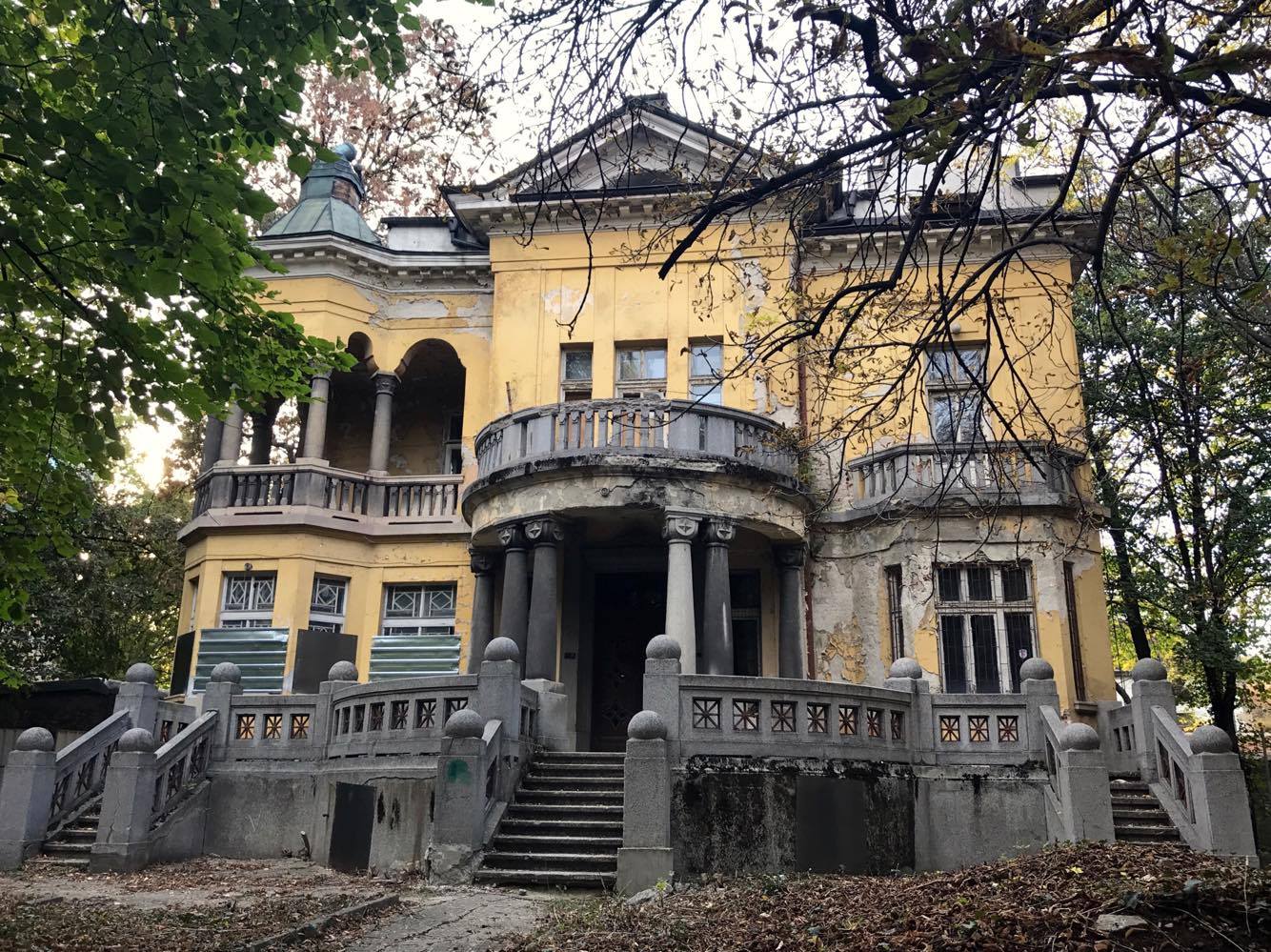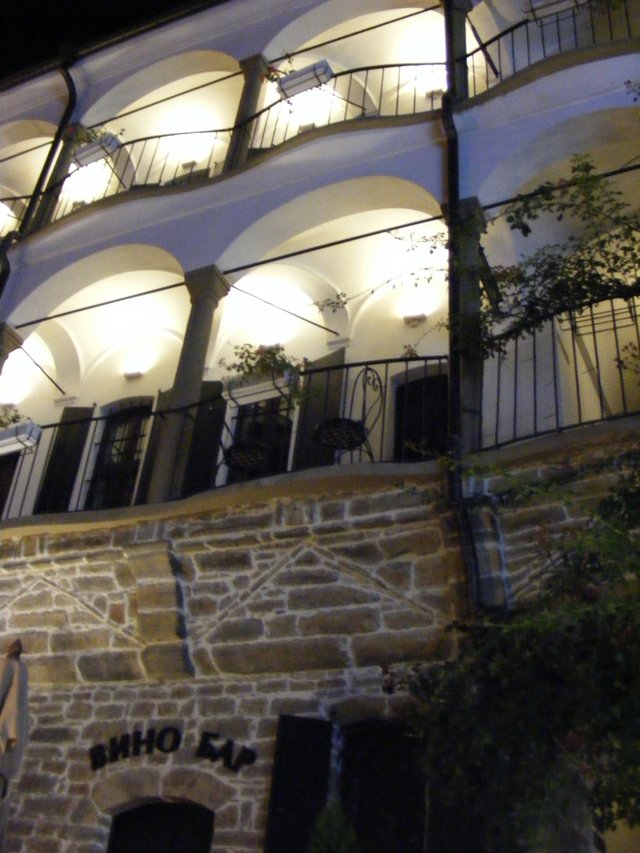Next in our series comes the question of which approach works best in preserving cultural monuments -- historical buildings and the like. Here in Bulgaria, most "cultural heritage sites" are run down and dilapidated -- as the upkeep is too time-consuming and expensive due to regulation. Instead of being renovated and offered as guest houses, b-n-bs, and so on, most historical buildings are left to eventually collapse, leaving nothing for future generations. In other words, the regulations have the exact opposite effect of that which was intended. It's a tragedy and a shame, really. -- Translated by @peter.tsukev, edited by yours truly :)
Don't forget to check out our other entries in the series!
Preserving Cultural Heritage
by Teodor Karakolev for Expert Club of Economics and Politics (Sofia, Bulgaria)

(Above, The Strawberry House, protected by government. Credits to @samanthajbarnes)
People, no matter where, often expect quick-n-easy answers to complex questions. Such an attitude is evident when people in Bulgaria say “Let's just do like they do in the West” or “in the more civilized countries.”
Preserving cultural heritage is but one of the immeasurably complex issues for which there exist no easy solutions. The Law on Cultural Heritage, enacted in Bulgaria in 2009 (and which has undergone several amendments since), is the only law people have to turn to. Many experts do not consider it a very good law. According to them, the organizations that are tasked with implementing the law — in particular, The National Institute of Cultural Heritage — do not function well because of insufficient financing, staff shortages, or lack of legislative power to impose their decisions on private owners of those buildings determined to have cultural value.
Cultural Heritage around the World
The reality is that — in every corner of the globe, including the West — the policies attempting to preserve cultural heritage inevitably vary. In fact, this subject is so multifaceted that judging whether a certain law (or lack thereof) works more or less efficiently than another country’s is somewhat difficult.
What is interesting, however, is the approach of or, as lawyers like to call it, the spirit of the law. In some countries, there is no central law preserving cultural heritage, as is the case with Germany and Switzerland. Not to say that no one takes care of their cultural heritage — on the contrary, they have private NGOs, usually financed by charity funds that give consultation or draw up proposals for restoration projects. Very often, the plans are drawn up pro bono for the owners of cultural heritage sites, since the NGOs can decide whether or not to do so themselves, and occasionally, the NGOs directly finance the restoration projects in the form of donations. The Deutsche Stiftung Denkmalschutz has hundreds of buildings listed on their website that have been restored in this way.
In many other countries, the law that does exist is soft, having as its main aim not to pass bans or restrictions, but to foster education and cooperation. Additionally, such laws include various stimuli opportunities — most often in the form of tax breaks. The emphasis on cooperation with private owners of cultural sites, providing consultation, not restrictions, is at the heart of much of the legislation of such countries as Holland and Czechia, for instance.
The Bulgarian Approach
In Bulgaria, the main duty of the National Institute of Cultural Heritage (NICH) is to make decisions regarding cultural values. In other words, if you want to renovate your house, which NICH happens to have “protected” for its cultural value, you either get a yes or no answer. [ed. And a yes answer often takes years to grease all the right palms and, thus, costs 3-10 times as much as usual -- due to the number of palms that need to be greased.] There is rarely a recommendation on the best way to carry out the restoration or on the best specialist in the particular architectural style to contact. In other words, most applicants receive no help from the institute — only prohibitions. I make no comment here as to whether the fault is due to under-staffing or to some other reason.
As far as financing is concerned, the approach of German NGOs is a lot more honest — since using government money to restore privately-owned buildings leaves the whole process open to more corruption. We also have to take the fact into account that the creation of any governmental organization to solve a societal problem decreases the chances that free citizens, independent of political figures and financing, will create an NGO offering alternative solutions.
The Case in the United States
US policy on this matter is particularly interesting. Despite comments to the contrary (the gut reaction frequently encountered here in Bulgaria) — yes, the US actually does have a rich history, and yes, there are many building there that are worthy of preservation for their cultural heritage. Actually, the privately owned cultural heritage buildings in both Bulgaria and the US date back to more or less the same period — primarily from the 19th century and the first half of the 20th.
In the States, everyone has the right to nominate a building for candidacy to be listed as a cultural heritage — but only with the owner’s consent. Even if a building is listed as a National Cultural Heritage Site, the owners have complete freedom to do with it as they will. In reality, regulations mainly concern local infrastructure regulations. There also exist a number of tax breaks for maintaining historical buildings — both on the state and the federal level.
Despite this open policy and relative lack of prohibitions, the US has no problem with maintaining its cultural heritage buildings. The same can be said of other countries with minimal legislation/regulation, focusing rather on personal freedom, such as Switzerland, Germany, and Holland, among others.
Conclusion
Naturally, there are those countries in the world, such as France, Denmark, Italy, and others whose laws are tougher and more restrictive. Not to say, again, that these countries’ cultural heritage sites are not being spoiled or managed questionably — see, for example, the restoration of the Chartres Cathedral or the ugly water fountain placed over the original ancient one in Pompeii.
The topic is extremely complex, but the right approach seems to be the move towards free, private initiatives through increased dialogue with experts, professional advice, and education rather than simply hoping that restrictive government institutions can solve all our problems.
Well, I hope you liked our little sojourn down cultural alley, today. Hope you agree with us that too many restrictions and a top-down approach are often detrimental to the noble goal of preserving cultural and historical monuments for the future. Please upvote and resteem to get our message out to others :)
As a bonus, the following is a pic of a place in Veliko Turnovo owned and restored by Americans, despite the government regulations (sorry for the fuzziness)... Ciao за now!


Balkanos support ;) Follow and up...
Хвала :)
A classical liberal approach would also permit that no historic buildings be saved or maintained. The value placed on historical buildings, like anything, isn't unanimous. If an owner wants to demo a castle for an ultra modern mansion - proceed.
Agreed. Value is subjective.